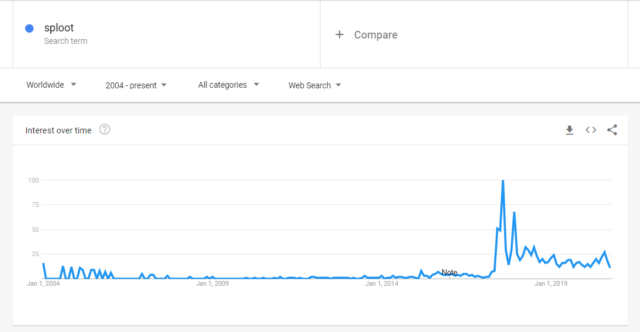Heckin’ good puppers – how has social media shaped the way in which we talk about our pets?

Do you call your furry friend a doggo or a pupper? Are they smol or are they chonky? Do they bork at you, or are they limited to a silent mlem? If you understand any of this then congratulations, you’re on your way to fluency in an entirely new sort of language – Doggolingo! While this all may seem like some inconsequential internet fun, this emerging language tells us a lot about our evolutionary past, and how our language may develop in the future.
You may dismiss Doggolingo as a joke, but it actually carries many of the hallmarks of a ‘traditional’ language. Firstly, it contains regional variances, which can be incorporated into the global vocabulary. Such an example is the word ‘doggo’, used in this context to describe our pets, rather than in the idiom to lie doggo, meaning to stay motionless and quiet. The more informal meaning is thought to have originated from Australian users of the Facebook page Dogspotting1, evident of the Australian English trope of adding a vowel to the end of words to form endearing nicknames. Doggolingo can also incorporate words and phrases from cultural content, for example, the word ‘bork’, thought to originate from the 2016 youtube video entitled ‘Careless Bork’2. Finally, the language is constantly evolving, adding terms such as ‘sploot’, while words such as ‘doggo’ are slowly fading into disuse, as speakers look for something new.

Although memes like those you see below may seem outdated now, lolcats was a cultural phenomenon during its peak popularity between 2006 and 2011. The ‘Cheezburger network’ associated with lolcats received $30 million in investment in 2011, with the craze seeing itself spawning TV and broadway interpretations3.
Compared to lolcats, Doggolingo is relatively primitive, with a small vocabulary and a bank of repetitive phrases. Lolcats has evolved a wider syntax, essentially placing the speaker in the head of the cat, and giving the chance to create novel words and phrases based on the linguistic structures they pick up in their online communities. In this way, the lolcats language is acquired by internet users in much the same way that infants pick up their native language. To exemplify this creative freedom, the LOLcat Bible Translation Project has now translated almost three-quarters of the Bible into the language, making for interesting reading….

(Image by J Wynia, on Flickr (CC BY 2.0))
The diversification of language in recent years has been no coincidence, arising as a result of both technological advances and our evolutionary history.

Image credit: Wikimedia Commons (CC BY 4.0)
We may think of memes as something to browse on Facebook instead of paying attention in lectures, but the term is, in fact, a zoological one, coined by Richard Dawkins in his 1976 book, ‘The Selfish Gene’. In this context, a meme is ‘a unit of cultural transmission’, which can be passed on non-genetically. They undergo selection much like genes, with detrimental memes (Dawkins uses the example of a meme for jumping off a cliff in his book, The Extended Phenotype, becoming lost while beneficial memes are replicated. It’s fairly simple then to apply this theory to see how language has evolved much like a set of genes. Helpful innovations would aid survival and therefore be passed on, while cumbersome syntax or ambiguous language would be discarded. In the case of hunter-gatherers describing the location of a food source, language could very much be a case of life and death.
The structures of our societies for the vast majority of human history has limited the evolutionary rate of language to a glacial pace. Social hierarchies have meant that only a minority of the population was taught to read and write, with most of these concentrated in urban strongholds. Consequently, rural dialects have not been widely incorporated into the language. Furthermore, written publications would all be edited by these educated individuals to meet the standards of the time, limiting creativity of expression and reinforcing language tropes.
Step forward the internet, providing roughly 4.5 billion people with the chance to have their input. Here there are no editors, and no reason to be formal (in fact, many strive for informality on social media, actively looking to convey a lack of effort). Ideas can be freely distributed across borders, with words (such as the African-American Vernacular English (AAVE) term ‘bae’) from communities that were traditionally confined to the peripheries of society being incorporated into the global vocabulary. The incorporation of such terms is controversial, with many condemning it as cultural appropriation. For example, social media star, Brittany Broski, received widespread criticism for using culturally-specific slang terms and claiming they were part of ‘internet culture’4. As Geoffrey Pulman notes in the article, AAVE has a complicated past associated with the slave trade, a history you would imagine the majority of social media users are unaware of when they use the slang merely as an instrument to give their sentences some additional personality. In spite of the criticism cultural appropriation sometimes attracts, the existence of the phenomena is clear and indicates the more global, integrative direction language is taking.
The next important aspect to look at is age profile. Those we consider millennials (born between 1981 and 1996) would have been teenagers when Facebook was opened to the public in 2006. Gen Z (born from 1995 onwards) are the first generation to go through high school and elementary school with Facebook’s cultural status established. This is important because teenager’s language habits are heavily influenced by their peers, as Gretchen McCulloch explains in her excellent book, Because Internet: Understanding the New Rules of Language. Combine this with Facebook’s numerical feedback system, the popularity of pets, and teenager’s desire to sculpt their image and personality, and you have a powerful catalyst for language change. McCulloch also explains that the other principal source of linguistic influence is your home and family environment. With an increasing number of those teenagers who grew up on social media eventually becoming parents themselves, we may well see young children picking up internet terminology even before they’ve been exposed to the internet themselves.
Finally, there is the basic social desire to belong to a social group. Think back to the lolcats Bible post earlier; how much did you understand? Even if you could understand the words themselves you probably didn’t recognise the plethora of references or in-jokes that helped form the language. Now think about discussions you’ve had with members of a group you belong to, for example, your degree course or fans of a certain TV show. To a layperson, much of the shared references and jokes will go over their head. For members of the lolcats community, finding fellow members who understand all the nuances provides a sense of belonging we all naturally crave.
2020 has been *ahem* difficult, to say the least. In these trying times, in which social isolation has been literally enforced by law, wholesome content and their communities have provided us with the sense of belonging we desperately need. In a year characterised by uncertainty, one thing we can be sure of is this; Benny is a very good dog.
Yes he is.

This article was specialist edited by Rachael Burrows and copy edited by Frankie Macpherson










